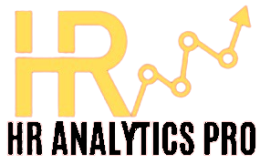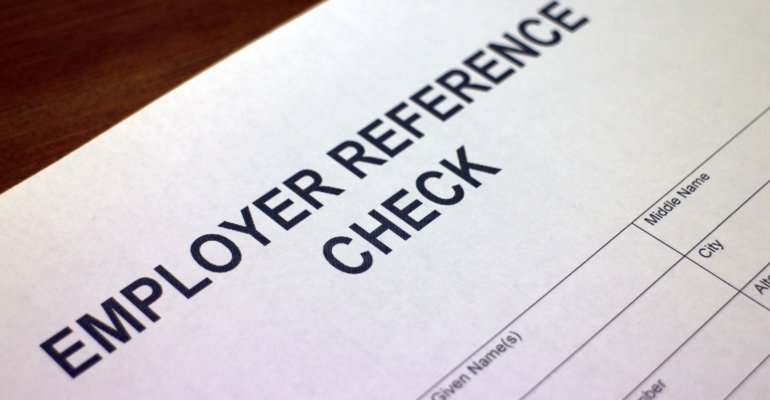Employee Reference
February 28, 2024 2024-02-28 14:39Employee Reference
Employee Reference
How to Get the Most Out of Employee Reference Checks
In the dynamic landscape of recruitment, where CVs can be embellished with exaggerated skills and experience, the importance of employment reference checks cannot be emphasised. It is the tool used to peel back the layers of a candidate’s professional background, offering insights beyond their self-representation. In this comprehensive guide, we’ll look at the fundamentals of employment referencing, the complexities of employee reference checks, and how to maximise their usefulness in your hiring process.
What is Meant by Employment Referencing?
Employment reference is the process of contacting a candidate’s former employers to verify their job history, performance, and character. It is about getting beyond the CV to discover the real picture of a candidate’s professional career. When done correctly, employment referencing provides significant insights that can help you make hiring decisions and avoid potential risks.
Why Employment Reference Checks Matter?
Let’s face it: the job market is flooded with individuals who are masters of presentation. Surveys reveal that a staggering 92.5% of UK workers have been guilty of sprucing up their CVs. They understand how to create a captivating CV, sprinkle it with buzzwords, and present themselves in the best possible light. However, beneath the glossy surface lurks the need for authenticity and reliability. This is where employment reference checks come into play. By reaching out to former employers or colleagues, employers can gain valuable insight into their previous performance, work ethic, and cultural fit with your organisation.
Steps Involved In Employee Reference Checks
-
- Initiating the Process: Request a list of references from the candidate. This exhibits transparency and allows you to obtain consent to contact their former employers.
-
- Crafting Relevant Questions: Tailor your questions to gather useful information about the candidate’s performance, strengths, areas for growth, and overall suitability for the post. Make sure to ask open-ended questions that encourage thorough responses.
-
- Setting the Stage: Before contacting references, introduce yourself, check their availability for a conversation, and provide background about the role and your company. This establishes a foundation for a productive discussion and promotes transparency.
-
- Conducting the Reference Check: During the conversation, ask probing questions to learn about the candidate’s work ethic, teamwork ability, problem-solving capabilities, and overall attitude. Pay close attention to the responses and, if necessary, probe deeper to gather valuable information.
-
- Documenting Findings: Take thorough notes during the reference check and record key takeaways, such as strengths, areas for improvement, and any concerns expressed by the reference. This documentation will be a useful reference point during the decision-making process.
Sample Questions for Employee Reference Checks
-
- Can you give an overview of the candidate’s job and duties while they were with your organisation?
-
- How would you describe the candidate’s work ethics and reliability?
-
- What were the candidate’s key strengths and areas for improvement?
-
- How did the candidate communicate with colleagues and stakeholders?
-
- Can you provide particular examples of the candidate’s contributions or achievements?
-
- Were any problems or areas for improvement recognised during their tenure?
-
- Would you hire the candidate again if given the opportunity?
-
- Is there any additional information or insights you would like to provide on the candidate’s performance?
Integrating Employee Reference Checks into Your Hiring Process
Employee reference checks should be seamlessly integrated into the overall hiring process to ensure that candidates are thoroughly vetted. Here’s how you can successfully incorporate them:
-
- Pre-Screening: Start by examining CVs and conducting preliminary screenings to find promising candidates.
-
- Interviews: Conduct interviews to determine candidates’ abilities, experience, and cultural fit.
-
- Pre-employment Testing: Consider providing assessments or skills tests to evaluate candidates’ ability.
-
- Background checks: Conduct a thorough background check to verify employment history, educational background, and any criminal records.
-
- Employee Reference Checks: Before extending a job offer, do reference checks to acquire information from former employers and evaluate individuals’ credentials.
Following this structured approach will ensure that employee reference checks are smoothly integrated into your hiring process, allowing you to make well-informed decisions and select the best candidates for your organisation.
Managing Legal and Ethical Considerations
When performing employee reference checks, it is critical to examine legal and ethical considerations in order to assure compliance and protect candidate privacy. Employers must seek candidates’ approval before contacting their references and follow applicable data protection requirements. Furthermore, companies should avoid discriminatory practices and conduct reference checks in a fair and impartial manner.
The Role of Technology in Streamlining Employment Referencing
In today’s digital age, technology has transformed the way employment references are conducted. Automated reference checking platforms, use innovative algorithms to speed up the process, allowing employers to collect feedback from references quickly and efficiently. These platforms provide customisable questionnaires, real-time reporting, and data analytics tools, allowing businesses to make data-driven hiring decisions.
Conclusion
Employment reference checks are thus an essential part of the hiring process, providing crucial information about individuals’ past performance and suitability for a position. By adhering to best practices, asking appropriate questions, and seamlessly incorporating reference checks into your hiring process, you can make informed decisions and select individuals who are the most suitable fit ffor your organisation. With the correct attitude and tools, employment referencing may be an effective ally for developing a high-performing workforce and generating organisational success.






